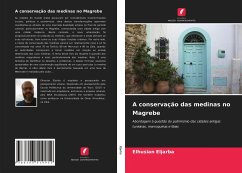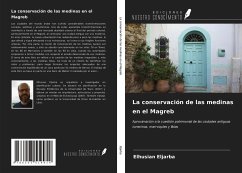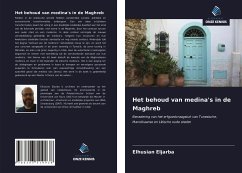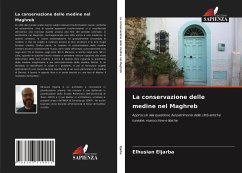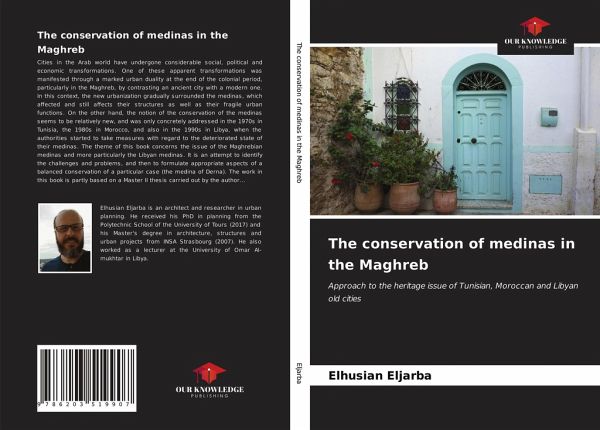
The conservation of medinas in the Maghreb
Approach to the heritage issue of Tunisian, Moroccan and Libyan old cities
Versandkostenfrei!
Versandfertig in 1-2 Wochen
52,99 €
inkl. MwSt.

PAYBACK Punkte
26 °P sammeln!
Cities in the Arab world have undergone considerable social, political and economic transformations. One of these apparent transformations was manifested through a marked urban duality at the end of the colonial period, particularly in the Maghreb, by contrasting an ancient city with a modern one. In this context, the new urbanization gradually surrounded the medinas, which affected and still affects their structures as well as their fragile urban functions. On the other hand, the notion of the conservation of the medinas seems to be relatively new, and was only concretely addressed in the 197...
Cities in the Arab world have undergone considerable social, political and economic transformations. One of these apparent transformations was manifested through a marked urban duality at the end of the colonial period, particularly in the Maghreb, by contrasting an ancient city with a modern one. In this context, the new urbanization gradually surrounded the medinas, which affected and still affects their structures as well as their fragile urban functions. On the other hand, the notion of the conservation of the medinas seems to be relatively new, and was only concretely addressed in the 1970s in Tunisia, the 1980s in Morocco, and also in the 1990s in Libya, when the authorities started to take measures with regard to the deteriorated state of their medinas. The theme of this book concerns the issue of the Maghrebian medinas and more particularly the Libyan medinas. It is an attempt to identify the challenges and problems, and then to formulate appropriate aspects of a balanced conservation of a particular case (the medina of Derna). The work in this book is partly based on a Master II thesis carried out by the author...





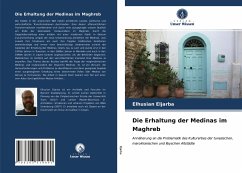
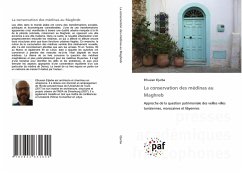


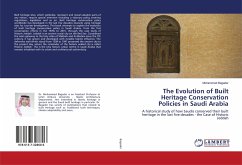
![A Scheme For The Protection And Conservation Of Antient [sic] Buildings In And Around The City Of Ahmedabad Cover A Scheme For The Protection And Conservation Of Antient [sic] Buildings In And Around The City Of Ahmedabad](https://bilder.buecher.de/produkte/74/74725/74725194n.jpg)
